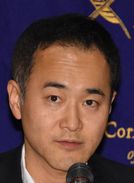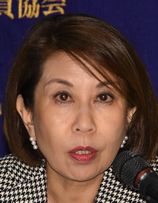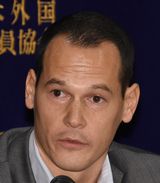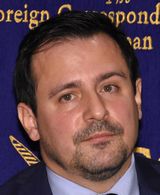Thursday, December 20, 2018, 11:00 - 12:30
Akira Ueno, Lawyer, Nihonbashi Sakura Law Firm
Noriko Odagiri, Professor of Clinical Psychology, Tokyo International University
Tommaso Perina, an Italian Father
Vincent Fichot, a French Father
(The speech and Q & A will be in English and Japanese with interpretation)
"Japan's Child Abduction Issue: Foreign parents want their custody and access rights recognized, and court rulings enforced"
Child abduction and retention refers to the illegal removal of children from their habitual residence by a family member or their retention in contravention to the international law. In the past, foreign governments tried but failed to solve the hundreds of cases brought by their own citizens against Japanese nationals abducting children born from these international couples. Children's Rights Council, a non-profit organization, estimates there are 2,000 or more new cases in Japan every year as the number of international marriages increases.
But this is far from being only an issue related to international marriages. Joint custody does not exist under the civil code in Japan, where most minors after separation or divorce lose contact with one parent. Even though in 2014, the country ratified the Hague Convention on International Child Abductions, which provides for an expeditious, almost automatic method to return a child abducted by a parent from one member country to another, foreign court rulings are seldom enforced. This happens because in Japan there is not a single law that prevents parents from abducting their own children or that obliges a parent to allow visitations. That legal blind spot fails to acknowledge the inalienable right of every child to have equal access to both parents, as stated in the UN Convention of the Rights of Child (art.9).
Failure by a parent to abide by the court ruling is not seen as a criminal act – which in some countries brings immediate arrest and custody – but is tolerated to ensure the so-called "principle of continuity." To ward off criticism, the then Minister of Justice Yoko Kamikawa said last June that the country would overhaul its domestic laws to implement the Hague Convention. But there has been no concrete follow up since the new minister, Takashi Yamashita, stepped in. The experts today will discuss the current situation from the legal and welfare perspectives, with the two fathers telling their own stories.
Akira Ueno represents several left-behind parents and is an experienced lawyer on Japanese family law. Noriko Odagiri, Ph.D. is a professor of clinical psychology at the Tokyo International University and a renowned counselor who also serves as a mediator for The Hague Abduction Convention.
Tommaso Perina is a 40-year-old Italian father from Verona who saw his abducted children (a 5-year-old son and a 3-year-old daughter) for less than six hours in the past two years. The abduction of Vincent Fichot's children has been officially taken up by the French Embassy in Japan.
5F Marunouchi Nijubashi Bldg., 3-2-3, Marunouchi, Chiyoda-ku, Tokyo 100-0005
Doors open for TV crew at 10:15, For all others at 10:30, still cameras included.
Please reserve in advance, 3211-3161 or on the website (still & TV cameras inclusive). Reservations and cancellations are not complete without confirmation.
Professional Activities Committee




Akira Ueno Noriko Odagiri Vincent Fitchot Tomasso Perina

